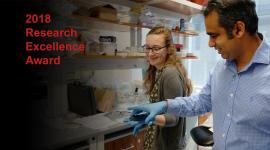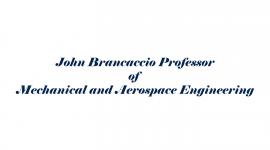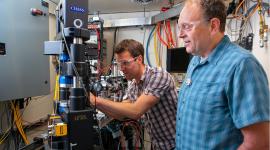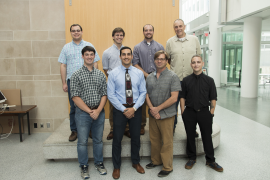
Assistant Professor Ankur Singh received research excellence award
Ankur Singh is an Assistant Professor in the Sibley School of Mechanical & Aerospace Engineering at Cornell University. Dr. Singh has strong expertise in the engineering of biomaterials-based platforms for cell and immune modulation, cell-biomaterial interactions, cell adhesion, stem cell engineering, and vaccines. He received his postdoctoral training at Georgia Tech where he employed engineering and molecular cell biology principles to understand human stem cell reprogramming and differentiation, stem and mature cell adhesion, force response and mechanotransduction. Dr. Singh received his Ph... Read more








